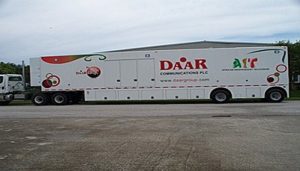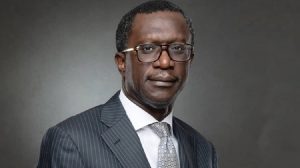
The Executive Director, Gennex Technologies, Toyin Ilo, has stated that inadequate financing for solar development is still a factor mitigating the adoption and penetration of solar energy in Nigeria.
Indeed, solar penetration in Nigeria is still relatively low, despite the country having about 60 per cent of the world’s best solar resources.
Speaking at the Gennex Colloquium tagged ‘Accelerating the adoption of solar energy: Strategies for overcoming barriers and growth’ in Lagos, explained that prices of solar energy installations have been dropping by over 50 per cent year on year, adding that it is good news to people in the renewable energy space.
“Our financial partners are here to dive deeper into how we make solar solutions more affordable for all categories of users in Nigeria,” she said.
“We know there are hurdles to be overcome but we need to start the discussions now. Also, we acknowledge that financial barriers still mitigate the adoption and penetration of solar energy in Nigeria,” she added.
She pointed out that in recent times the world has witnessed a sporadic spike in the pricing of fossil fuels which has become very challenging for countries subsidizing fossil fuels as they try to deal with economic headwinds and balance their budgets.
“Today, we are all standing together on the visibility and acceptance that is not just because of environmental choice or cost reduction solution but more importantly the economics of the viable option for renewable energy solutions,” she stated.
She added that as countries in Africa deal with these economic challenges, there is no better time to look inward to spur the production of renewable energy inputs in African countries.
According to her, Gennex is a leader in the industry and its vision is to see a Nigeria, and indeed, an Africa that is powered by renewable energy shortly.
“That is why we have brought every stakeholder together in this room to generate insights that would further develop the sector. We are presently in the space of an energy revolution. Technology is advancing and people are becoming more conscious of their choices. I am extremely confident that renewables will power the future. Let us work together, advocate, innovate and be the change we wish to see,” she urged.
Also speaking, the Zonal Coordinator for South West Zone, Rural Electrification Agency (REA), Engr. Dolapo Boyejo, said many engineers in the country can produce solar products but are incapacitated by a lack of financial resources to produce them in large quantities.
He called on the need to support manufacturers who have an interest in manufacturing solar mini-grid systems in the country.
On his part, the Director of Laboratory, Standards Organisation of Nigeria (SON), Richard Adewunmi, pointed out the need for Nigeria to look for sincere manufacturers overseas that would set up assembly plants in Nigeria to transfer knowledge.
“We have some engineers putting solar products together, but they might not be the best but they can develop. What we need to do is look for very sincere manufacturers overseas that we can partner to set up an assembly plant in Nigeria, and through that process, you learn or you get better, but if we jump into it without adequate knowledge, very soon they will fade away. So, I would rather say to Nigerians that we should partner and outsource areas where we know we need help. Otherwise, we will put technology together and then it becomes a bigger problem,” he averred.






